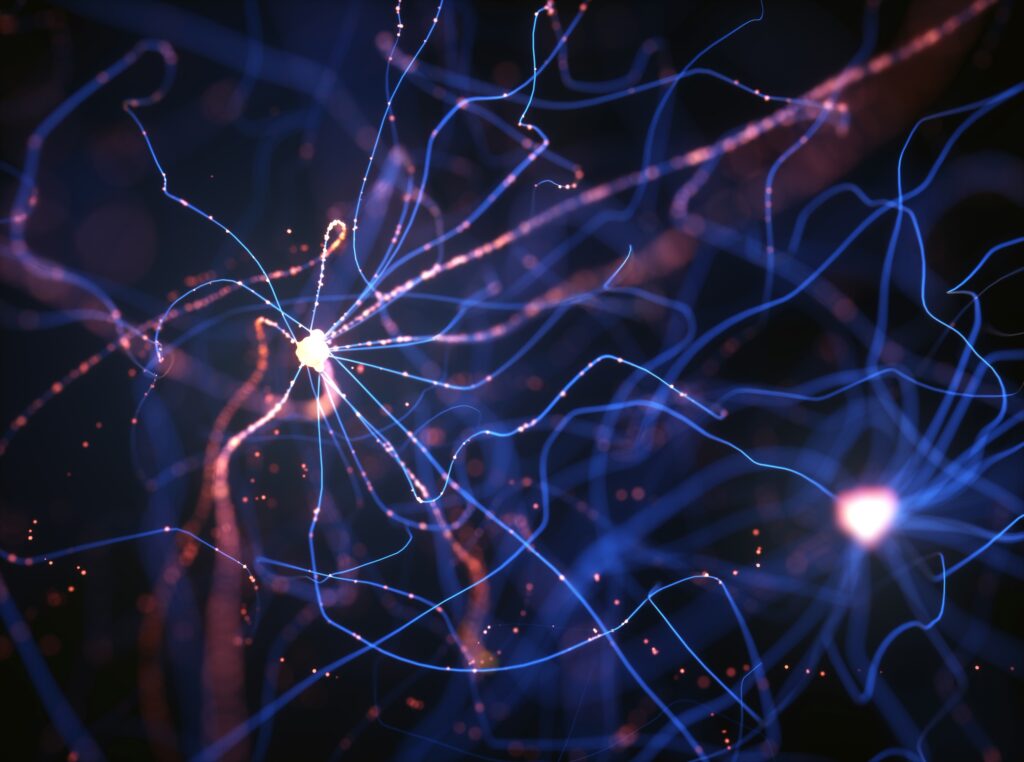Beyond scientism: Re-humanizing the mind (The Return of Idealism)
Reading | Philosophy
![]() Dr. Giuseppina D’Oro | 2024-02-24
Dr. Giuseppina D’Oro | 2024-02-24

Non-reductionism, the idea that mental states are not reducible to physical states, is the new orthodoxy in analytic philosophy of mind. However, in this instalment of our series The Return of Idealism, in partnership with the Institute of Art and Ideas (IAI), Dr. Giuseppina D’Oro argues that analytic philosophy’s conception of psychology as a natural science is beholden to the dubious ideology of scientism, therefore not acknowledging the autonomy of the mental. This essay was first published by the IAI on 19 February 2024.
Reductionism is no longer fashionable in philosophy of mind—the days when the idea that mental states are reducible to physical states was a given are over, and non-reductionism is the new orthodoxy. Yet, while many philosophers of mind would consider themselves card carrying non-reductionists, they also tend to think of psychology as a natural science of the mind. As a result, the defence of the autonomy of the mental one finds in most textbooks operates within a naturalistic framework which fails to acknowledge that humanistic explanations differ in kind from scientific ones.
There is however a neglected form of non-reductionism that has its roots in the idealist tradition and is genuinely pluralistic from an explanatory point of view. This form of non-reductionism is motivated by a defence of humanistic understanding and is found in the work of late British idealists, Michael Oakeshott and R.G. Collingwood. They espoused a version of idealism according to which the task of philosophy is not to determine the constitution of reality, whether it is material or immaterial, but to expose the presuppositions on which all knowledge, including scientific knowledge, rests.
They argued that the methodological assumptions of scientific inquiry are very different from those of humanistic inquiry and that it is therefore a mistake to think it possible to explain the mind in scientific terms. As a result, unlike most non-reductionists in twentieth century philosophy of mind, they were sceptical of the view that psychology could be legitimately described as the science of the mind and endeavoured to expose the conceptual confusions implicit in the very idea of a natural science of the mind.
In On Human Conduct Oakeshott argued that there are “categorically different orders of inquiry,” the humanistic and the scientific, which are concerned with altogether different kinds of goings-on and whose subject matters are sui generis and irreducible. Humanistic inquiries are concerned with ‘goings-on’ the identification of which includes the recognition that they are themselves exhibitions of intelligence. Ethics, jurisprudence and aesthetics are distinguishable idioms within the order of inquiry concerned with goings-on identified as expressions of intelligence. Scientific inquiry is concerned with ‘goings-on’ which are not themselves exhibitions of intelligence. Physics, chemistry and psychology are distinguishable idioms within the order of inquiry concerned with processes. Psychology, as one of the idioms of natural science, speaks the language of laws and processes and, as such it is “categorically excluded from providing any such understandings.”
Consider for example the distinction between a blink and a wink. If a movement of the eyelid is described as wink this description entails that the person winking knew how to signal by rapidly closing and opening an eyelid. If one describes a person as blinking, by contrast, there is no such implication. A person blinking has not learned how to open and close the eyelid just as “a falling apple does not need to have learned the law of gravitation in order to fall.”
The descriptions of the movement of the eyelid as either a blink or a wink capture the explananda of two different orders of inquiry, humanistic and scientific and, as such, they are categorically distinct descriptions. Not all distinctions, according to Oakeshott, are categorial distinctions. The action of opening a window, for example, could be described either as an attempt to let an annoying insect out or to air a room. This sort of distinction captures two different interpretations of what was happening that belong to the same order of inquiry. ‘Letting a fly out’ and ‘letting air in’ are goings-on of the same kind, unlike a blink and a wink which are categorically distinct because they belong to different orders of inquiry. Philosophy disambiguates categorically ambiguous descriptions by distinguishing between the kinds of explanations which make such categorical distinctions possible in the first place.
Failure to disambiguate categorically distinct kinds of goings-on, such as a blink and a wink, and their corresponding orders of inquiry, obfuscates the difference between norms or rules, which need to be acknowledged to be operative and laws, which do not. Since psychology is a natural science whose explanations invoke laws rather than norms, the explanation of what it is that someone does when winking, cannot be a psychological explanation.
Oakeshott’s criticism is not directed at psychology as a genuine natural science but at psychology as an ‘all-purpose’ science. The target is not science, which he recognizes as a legitimate cognitive enterprise, but scientism. The subject matter of psychology as a genuine natural science “is a world of quantitative concepts and measurements, not a world of ‘mental phenomena.’ And where psychology is a science, its conclusions will have the same character, significance and validity as the conclusions of any other science.” As an all-purpose science, psychology presents (psychological) mechanisms as the motives for actions or reasons for beliefs and is not a genuine natural science but the “spurious intellectual enterprise” which seeks “to understand ‘goings-on’ identified as themselves exhibitions of intelligence—expressions of sentiment or belief, arguments, practices, artefacts, intentions, motives, actions…” in terms of causal laws.
Oakeshott’s distinction between different orders of inquiry and the distinctive goings-on that they investigate gives rise to a defence of the autonomy of the mental that is quite different from the sort of non-reductionism that dominates contemporary philosophy of mind. What Oakeshott refers to as intelligent human conduct, or the sort of goings-on which are the subject matter of humanistic understanding, contemporary philosophy of mind explains by invoking laws as if they were falling apples.
A case in point is multiple realization functionalism, which claims that mental states could be realized in different kinds of physical systems. Since the mental state of being in pain, for example, could be realized in both a human and an octopus, who have very different physiologies, it is not possible to reduce mental states to physical states as reductionists hoped to do. This non-reductionist argument is not premised on the view that there is a categorically distinct kind of going-on which cannot be captured by law-like explanations.
Multiple realization functionalists do deny that mental states are reducible to physical states, but they still couch mentalistic explanations in the language of laws: stimulus of type x gives rise to behavioural response of type y. As a result, they fail to acknowledge the categorial distinction between different kinds of goings-on, such as that between a blink and a wink. For Oakeshott, physics, chemistry, biology—and indeed psychology—are idioms of one and the same order of inquiry, one whose explanations invoke laws. A non-reductionism worth its salt must acknowledge that the distinction between the kind of goings-on investigated by humanistic and scientific inquiry is not a mere idiomatic distinction within the same order of inquiry.
Nor would Oakeshott have been reassured by the recent resurgence of panpsychism informed by Russellian Monism. Panpsychists like Philip Goff and Galen Strawson have argued that to solve the hard problem of consciousness—the mystery of how consciousness is able to emerge from mere grey matter—one must assume that consciousness is already to be found in some rudimentary form in the fundamental constituents of reality.
But by and large, panpsychists are not explanatory pluralists who challenge the unity and completeness of scientific explanations. Instead, they simply claim that the ontological constitution of the particles whose behaviour physics describes through its laws is not what materialists thought it to be. While panpsychism denies the truth of physicalism, it does not challenge the idea that explanations of mental phenomena differ in kind, and are therefore irreducible to, the lawlike explanations one finds in other natural sciences such as biology, chemistry, and physics.
One might not immediately recognize Oakeshott’s conceptual cartography in On Human Conduct as a form of idealism. But his denunciation of the ‘categorial rubbish’ that is produced by the failure to disambiguate different orders of inquiry has deep roots in his earlier work, Experience and its Modes, a work that is steeped in the idealist tradition.
In Experience and its Modes Oakeshott argues that different forms of knowledge or modes of experience rest on distinctive presuppositions and that any truths that are asserted within these modes are conditional upon those presuppositions. Different forms of knowledge or modes of experience bring not a subsection of reality, but the whole of reality, under different descriptions.
When one describes a painting as morally edifying but lacking aesthetic qualities, for example, one is not describing different sections of the canvas but examining the whole of it from different perspectives. Scientism is the attempt of any one form of knowledge or experience to assert its own truths absolutely and unconditionally as if it were presupposition-less, thereby resulting in a kind of intellectual Manicheanism. Experience and its Modes contrasted the presupposition-based knowledge obtained within forms of experience to philosophy which was deemed to be presupposition-less.
By the time Oakeshott wrote On Human Conduct he abandoned this conception of philosophy as a presupposition-less inquiry into the absolute. Instead, he saw philosophy as a second order investigation into the presuppositions on which knowledge rests. But his later defence of the claim that the subject matters of humanistic and scientific inquiries are distinct kinds of goings-on is firmly grounded in the earlier idealist view that different forms of knowledge or experience operate with different presuppositions which bring the whole of reality (not just a segment of it) under a different (categorial) description. It is the idealist slant of Oakeshott’s criticism of psychology as an all-purpose science that explains why the defence of the autonomy of humanistic understanding he develops in the later work is a genuine form of explanatory pluralism that differs from the bland forms of non-reductionism that have tended to dominate the philosophy of mind.
R. G. Collingwood, who greatly admired Oakeshott’s work, and also thought of psychology as a pseudo-science of the mind agreed that humanistic and scientific knowledge rest on different presuppositions which philosophy brings to the fore. The methodological assumptions which inform scientific and humanist inquiries give rise to the questions that are characteristically asked within their domains.
When natural scientists ask, for example, why litmus paper turns pink, they are not asking the same kind of question that historians pose when asking, for example, why a country amassed troops on its borders. Answering the historian’s question requires uncovering the point of amassing the troops, rather than finding out what normally happens when certain antecedent conditions obtain. These questions are answered by different kinds of explanations to which there correspond two categorically distinct kinds of goings on: actions, the subject matter of humanistic inquiry; and events, the subject matter of scientific inquiry.
For Collingwood, the natural scientist is categorically excluded from answering the questions of the historian (and vice versa), just as for Oakeshott, psychology, as a natural science, is categorically excluded from understanding intelligent goings-on. Neither Oakeshott nor Collingwood intended to preclude the possibility that one might investigate human behaviour in the way in which one investigates the behaviour of litmus paper. But what they did claim is that, in so doing, one changes the subject matter.
Oakeshott’s and Collingwood’s idealism leave behind the dichotomy between scientism and historicism. Their goal is not to promote a form of inverted scientism claiming that all knowledge is humanistic knowledge relative to knowers at a time and a place, but that all knowledge, including scientific knowledge, is based on presuppositions and that acknowledging the methodological assumptions which govern their domains of inquiry is a condition sine qua non for being able to make the categorial distinction we make, such as the ones between a wink and a blink, or between (natural) evolution and (historical) revolution. They do not argue that all knowledge is historical knowledge (history being seen as the paradigm of humanistic disciplines) but that the presuppositions of humanistic knowledge are not the same as those of scientific knowledge.
Above all, the idealism of Oakeshott and Collingwood eschews the dichotomy between naturalism and supernaturalism. Actions, or the kind of “goings-on” which are best accounted for by humanistic explanations, are not supernatural or not-natural entities. They are reality understood under the presuppositions of humanistic inquiry, just as events are the kind of goings on which scientific inquiry investigates; they are reality known under a different set of presuppositions. It is the commitment to scientism, or the view that scientific knowledge is presupposition-less, that relegates the domain of inquiry of the humanities to a supernatural realm.
Idealism comes in different shades of grey. It can be an ontologically ambitious claim about the nature of reality, as in the case of Berkeley’s phenomenalism, or an epistemically humble claim about the limits of knowledge, as in the case of Kant’s transcendental idealism. It can also be a form of conceptual analysis which denies the meaningfulness of any talk about presupposition-less knowledge and reminds us of the dangers associated with asserting the truths of any one form of knowledge or experience absolutely and unconditionally as if they were presupposition-less.
As long as we fail to acknowledge that idealism is a broad church, and the differences between the varieties of idealism available, we will also fail to see how the idealism of Oakeshott and Collingwood informs a defence of the autonomy of humanistic understanding that rejects naturalism without endorsing supernaturalism and provides a much-needed alternative to forms of non-reductionism which remain committed to scientism.
Bibliography
Collingwood, R.G. (1940), An Essay on Metaphysics, Oxford: Clarendon Press, revised edition, with an introduction by Rex Martin, Oxford: Oxford University Press, 1998.
D’Oro, G. (2023) Why Collingwood Matters: A Defence of Humanistic Understanding. Bloomsbury.
Fodor J. A. (1989), “Making Mind Matter More”, Philosophical Topics 17: 59-79.
Goff, P. (2019) Galileo’s Error: Foundations for a new Science of Consciousness. New York: Pantheon Books.
Nardin, T. (1942). The Philosophy of Michael Oakeshott, University Park, Pennsylvania: the Pennsylvanian University Press.
Oakeshott, M. (1933). Experience and Its Modes. Cambridge University Press.
Oakeshott, M. (1975). On Human Conduct. Oxford: Clarendon Press.
Russell, B. (1927). The Analysis of Matter. London: Kegan Paul
Strawson, G. (2006). “Realistic Physicalism: Why Physicalism entails Panpsychism”, in A. Freeman (ed.), Consciousness and its Place in Nature: Does Physicalism entail Panpsychism? , 3-31, Exeter: Imprint Academic.

Essentia Foundation communicates, in an accessible but rigorous manner, the latest results in science and philosophy that point to the mental nature of reality. We are committed to strict, academic-level curation of the material we publish.
Recently published
Reading
Essays
Seeing
Videos
Let us build the future of our culture together
Essentia Foundation is a registered non-profit committed to making its content as accessible as possible. Therefore, we depend on contributions from people like you to continue to do our work. There are many ways to contribute.















